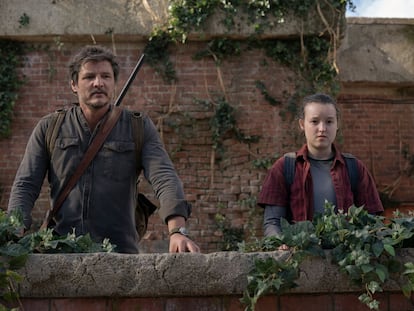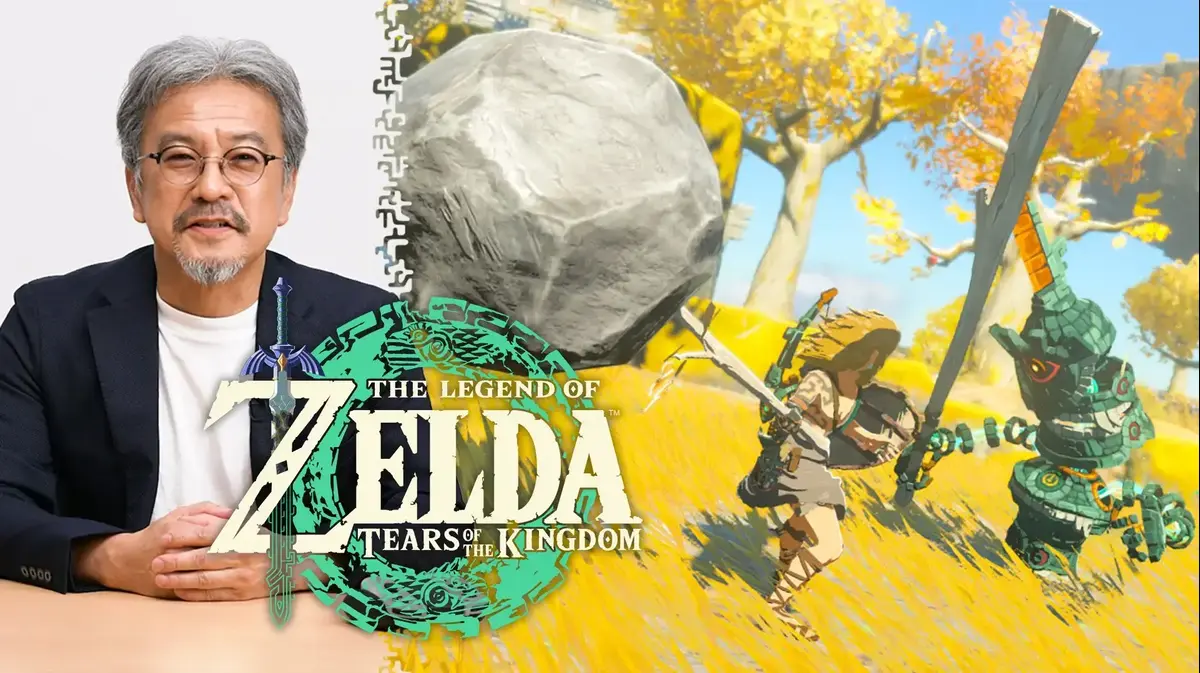We live in a compartmentalized world. Fame is elusive and fragmentary and transversal phenomena are on the way to extinction. Few cultural products have intergenerational reputation; few succeed in the same way in Asia, Europe and America. One of these rare exceptions has turned out to be a video game with a children's aesthetic that inevitably refers to the films of Studio Ghibli. The Zelda saga has been adding deliveries for 40 years (18 in the main saga, about 45 with adaptations and spin off) but few episodes have shaken popular culture with the virulence of the recently released The Legend of Zelda, Tears of the Kingdom. Reasons are not lacking.
When it premiered in Japan, several companies gave their workers the day off. It was a worldwide trending topic. It shipped in its first days 10 million copies, revitalizing the sales of a console, the Nintendo Switch, with six years of life. But how has this game become a worldwide phenomenon?
Homosexuality, communism and a menstrual cup: 'The Last of Us' has become the nightmare of conservatives
Zelda is a beautiful game. The landscapes, the horses, the smell of the grass... Even monsters are cute. It's as instagrammable as a sunset or a tuna tartare. And much more fun. One of the great strengths of Zelda is that it is not only entertaining to play. It's hypnotic to see how others play. It has a component of construction and crafting, mechanics similar to those of games of undeniable viral potential such as Minecraft. And this has made him a sensation on social media.
A scene from the video game 'The Legend of Zelda: Tears of the Kingdom', a social phenomenon and already considered by many as the best in history. Nintendo
In Zelda you can cut down a tree and turn it into a trunk. Glue several logs, add wheels, a sail and create a sailboat. You can combine swords with rockets. You can coat your shield with a flamethrower or stick it to a mining cart to turn it into a skateboard. You can create torture machines, giant robots. Even giant penises, which is what, to no one's surprise, hundreds of players have started doing.
In a traditional game, puzzles are solved in only one way. But in Zelda the possibilities are endless. The player is encouraged to cheat, to try different solutions, enhancing their creativity. And encouraging him to observe how other players solve the problems that have been made to him. "Zelda has brought us back to a schoolyard knowledge system, where we're constantly exchanging ideas with other players," summarized video game designer Andrew Shouldice, in a recent New York Times article about the cultural impact of the series.
This is especially interesting in the world of streaming, when video games are consumed through consoles, but also viewing platforms such as Twitch. But Zelda has not only gone viral on this social network, focused on the gamer and eminently young public.
'Gamers' line up at a Nintendo store in New York to get their copy of 'The Legend of Zelda: Tears of the Kingdom'. The Washington Post (The Washington Post via Getty Im)
The console's 30-second videos are shocking enough for Gen Z to consume in TikTok videos; the map is dense and deep enough for millennials to analyze in brainy YouTube videos. And its classic game mechanics make it appealing to boomer audiences. Zelda has crossed the screen of the Nintendo Switch to jump from mobile to mobile, and from generation to generation.
The game has managed to keep the first fans, those who got hooked on Link's first adventure almost 40 years ago. Its advertising campaign in Australia targets that audience. It follows a middle-aged man who rediscovers the excitement of childhood on his way to and from work. In a couple of weeks it has accumulated more than 1,700,000 views on Youtube.
But along the way it has managed to hook the new generations, just take a look at the streamers under 30 who are enjoying the game on social networks, people like Illojuan, who find in their construction mechanics minecrafteras, a modern game that speaks their language. This makes Zelda an intergenerational icon, a rare example of a game designed for all ages.
The origin of the legend
The legend began in a cave. Shigeru Miyamoto was a child of scouting vocation in post-war Japan. He didn't have a television, so he filled his days with country walks, as he recalls in the bookGame Over: How Nintendo Conquered the World, by David Sheff. On one of these excursions he discovered a cave, but it was very dark, so he returned home and got a flashlight. With this object a new screen was unlocked, a dark passageway that led to a huge cavity. Who knows what bats and terrible monsters were hiding inside. Years later, Miyamoto built, pixel by pixel, a replica of that cave, and filled it with ghosts and goblins. It was in the first game of The Legend of Zelda, released in 1986. With each new installment, Miyamoto recreated the Japanese countryside of his childhood in the fantasy world of Hyrule.
Queue of buyers in Japan waiting to get their copy of 'Legend of Zelda. Tears of the Kingdom'. RICHARD A. BROOKS (AFP via Getty Images)
Zelda refers to this childish idea of exploration. It just wants to be a game. And that's a rarity in an industry that struggles to be taken seriously and go beyond the medium itself. In recent years, the big titles in the sector have opted for a cinematographic narrative. They have made titanic efforts to appear mature and transcend the world of machines. The Last of Us always wanted to be a Cormac McCarthy movie or novel. Its creator, Neil Drukman, has served as director in some of the chapters of the successful television adaptation. Hideo Kojima, the most famous video game director of the XXI century, has a brainy essay on how he understands cinema, in which he lists the films that led him to create the Metal Gear Solid saga. There are other examples such as Mass Effect, Red Dead Redemption, Uncharted... And they all underpin the idea that critically acclaimed games bet on cinematic and adult narrative.
In this context comes Zelda, with her childish gamer pride. With his music he crushes that does not pretend to be a soundtrack. With its fixed shots during conversations, more typical of the realization of a news program than a Hollywood movie. Your conversation vignettes. And it breaks with the tendency of games to want to be something more. It has cinematographic references (the aforementioned influence of Studio Ghibli is evident) but it drinks, above all, from the classic Nintendo canon. Zelda just wants to be a game. But the best game ever.
Miyamoto is a master mechanic, not a storyteller. When designing video games, he focuses on gameplay. This approach was normal in the eighties. So, technical limitations made classic video games a bit like porn: either there was action or the story unfolded, but the two things didn't happen at the same time. Therefore, most of the titles bet on fun and reduced their arguments to a "save the princess", "save the world" or "dodge the barrels thrown by the giant monkey".
The Legend of Zelda, Tears of the Kingdom has a somewhat more complex story, but still drinks from that idea, putting fun and gameplay before everything else. It maintains the philosophy of the original so long after. Its director is no longer Miyamoto (who has lately been busy developing the Mario movie), but Hidemaro Fujibayashi, a creator who has been working exclusively on Zelda games for the last 20 years. It could be said that he knows this world well.
Tomorrow and tomorrow and tomorrow is one of Shakespeare's most depressing quotes. It is also the title of Gabrielle Zevin's gamer novel, book of the year according to the Times. In a promotional interview, the author explained that the phrase is a metaphor for the infinite lives that video games offer us. Of the eternal opportunities for redemption that we only have in this world. Few games represent this idea like Zelda, a game that has spent four decades repeating scheme, reinventing stories. Improving a formula that, far from being exhausted, seems today more oiled than ever. There are players who have been dying on the fields of Hyrule for a lifetime. And everything seems to indicate that they will continue to do so for many more years.
You can follow ICON on Facebook, Twitter, Instagram, or subscribe here to the Newsletter.














